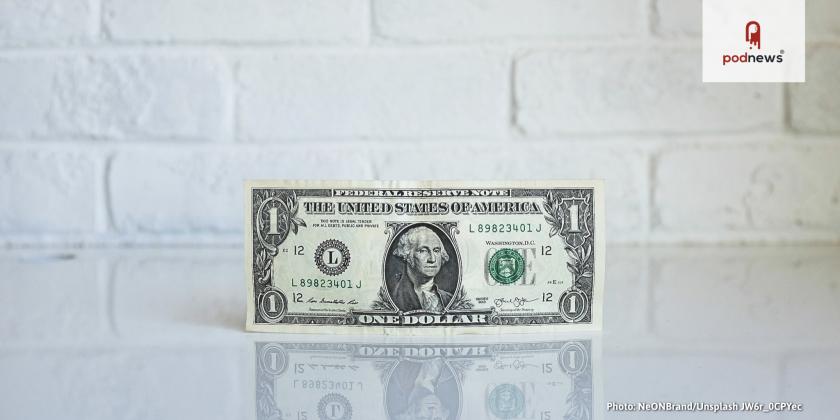
Will podcasts prove to be recession-proof? One business that’s booming during the pandemic - podcasting

This article is at least a year old
Podcasting has exploded in popularity in recent years, and while some may consider this form of expression as nothing more than an audio-based forum for the opinionated, the truth is that this medium has opened a breadth of content possibilities, not just for individuals but also for businesses.
Since 2008—the year the last global financial crisis kicked into high gear—podcasting has seen consistent year-over-year growth, showing its value and popularity as a form of on-demand content. 51% of the U.S. population has listened to at least one podcast, and up to 90 million Americans listen to podcasts on a monthly basis. As of May 2020, there were 1 million shows with more than 30 million episodes in 100 languages. That’s a lot of content consumption.
Between 2018 and 2019, the global podcast advertising market rose by an estimated 42% and is expected to top 1 billion by 2021. But, the million-dollar question is whether this trend is here to stay or is simply a passing phase. The current COVID-19 pandemic has upended the economy and resulted in extensive lifestyle changes as the global majority work, play and spend more time at home social distancing. Because of that, 74% of corporations and media buyers believe that the virus will have a greater impact on advertising than the 2008 financial crisis. And yet, unlike many other industries, podcast consumption has boomed despite, or perhaps because of, the social and economic fallout from this outbreak. In fact, staying at home has led to a 60% increase in the amount of content we consume.
Podcasting has also demonstrated its ability to mass-produce on-demand content in response to major global events. From the very beginning of the COVID-19 crisis, the podcasting industry was among the first to react and begin releasing a seemingly endless stream of pandemic-related content, even before the full effects of the virus were seen. In contrast, other content producers, particularly video, stagnated and suffered with a slower response time.
Like other digital media formats, podcasts are not completely immune to disruptions, layoffs and delays brought about by the current crisis. Both digital and traditional media advertising took a hit at the start of the pandemic as 24–46% of brands either paused or adjusted their advertising spending for 2020. While individual podcasters may be fine, a recession could hit new start-ups or highly leveraged companies particularly hard. However, podcasts generally seem not to have been overly disturbed by the pandemic, due in part to their ability to adapt more easily to social distancing constraints compared to more complex mediums.
While the number of podcast advertisements for certain industries has fallen during the COVID-19 pandemic—for instance in the travel, live entertainment and gambling industries—other sectors have seen a pronounced upsurge, including VPNs, household products and alcohol with ads increasing by 144%, 45% and 13%, respectively. Global podcast listenership rose by 42% in April, while rates increased by 29% and 25%, in Italy and Spain, two of the first countries to be quarantined. Megaphone, a podcast hosting and monetization platform, booked twice as much new business in April as it lost in March. Despite lack of commuters, there was a rise in podcasting ad revenue, a trend that will likely still be applicable post-COVID-19 with the rise of more Remote First office.
Podcasting also represents an ideal alternative for companies whose conferences or live events have been cancelled or postponed indefinitely due to the outbreak. In the absence of a physical presence, audio-streaming a live event may actually boost audience engagement compared to video, especially considering that many individuals typically listen to audio content while multitasking, for instance when performing housework, walking the dog or exercising.
Podcasting also offers strong audience loyalty. 80% of podcast consumers listen to most or all of an episode and listen to an average of seven different shows per week, representing an ideal target for branded marketing purposes. In addition, podcast listeners are more likely to be active social media users compared to the rest of the population and more likely to follow brands on social media.
Podcast consumption is not slowing down, and with that, advertising is on the rise which means a wide range of opportunities for branded podcasting as a marketing medium. Podcasting is here to stay. While no industry is ever completely recession-proof, the podcasting sector has proven itself to be far more resilient than most to major global turbulence. As a result, startups and brands should re-evaluate their marketing tactics and find ways to pivot into and take advantage of this channel. Although there is no doubt that the world we live in will change drastically following the pandemic, we can at the very least be assured that the human need to reach out and speak to others is one thing that won’t be changing.

































































































